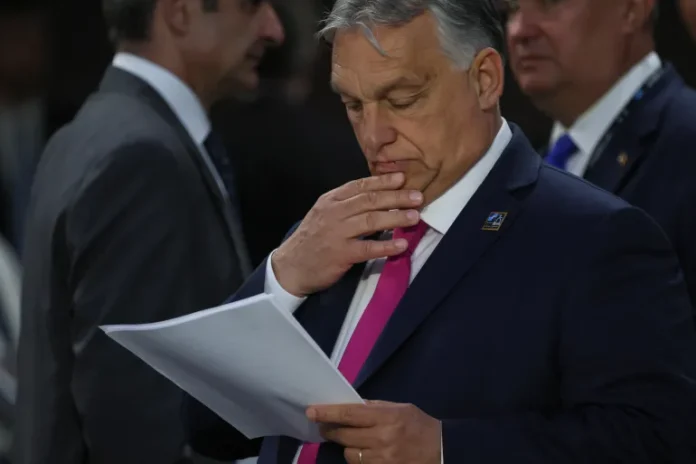The EU executive body in Brussels is partially boycotting Hungary’s six-month presidency of the bloc in response to Hungarian Prime Minister Viktor Orbán’s self-proclaimed “peace mission” that he launched after taking office earlier this month.
Orbán travelled to Kyiv, Moscow, Beijing and Washington for the NATO summit in the early days of Hungary’s presidency, before meeting Donald Trump in Florida.
The trip to Kyiv was Orbán’s first since the start of the military conflict in Ukraine, despite Hungary’s border with Ukraine. He called the trip a peacekeeping mission and tried to portray himself as one of the “very few” EU and NATO heads of government still able to hold productive talks in Moscow and reach an agreement with all sides.
In a letter to EU President Charles Michel, the Hungarian prime minister cites his “brief assessment” of recent talks with the leaders of Ukraine, Russia, China, Turkey and Trump: “In general, it can be stated that the intensity of the military conflict will radically increase in the near future.”
Orbán praises Trump and is confident that after winning the election, he “will not wait for his inauguration, but will be ready to act as a peace mediator immediately. He has detailed and well-founded plans for this.”
However, Orbán warns that Trump’s election victory will cost the EU dearly:
“The financial burden between the US and the EU will shift significantly in favour of the EU when it comes to financial support for Ukraine.”
The Hungarian PM also suggested discussing a peace conference with China and mending relations with the Global South, whose respect for the EU “has been lost because of its stance on the war in Ukraine.”
Wave of criticism
Sharp criticism of Orbán’s visit was immediately followed by other EU member states and Hungary’s NATO allies.
The EU executive said it would send only high-ranking officials to the informal meetings and not any of the 27 EU commissioners, referring to Commission President Ursula von der Leyen and her many subordinates. Von der Leyen spokesman Eric Mamer said:
“In light of recent developments marking the beginning of the Hungarian Presidency, [Ursula von der Leyen] has decided that the European Commission will only be represented at senior civil servant level during informal Council meetings.”
“There will be no visit of the board to the Presidential Administration,” Mamer added, referring to the semi-annual meeting that usually brings together all or most of the 27 commissioners in the rotating capital.
Such a visit is usually held at the beginning of a six-month period in the hope that talks will lead to subsequent planning and action. Several member states close to Russia have already taken this step.
Monday’s EU decision follows the lead of a number of EU member states, many of which are close to Russia’s borders.
Last week, the Swedish government announced that it, Finland, Estonia, Latvia, Lithuania and Poland would not send ministers to government meetings related to Hungary’s EU presidency in July in protest at Orbán’s talks with Putin in Moscow.
Sweden’s EU Affairs Minister Jessica Roswall said at the time that the countries would be represented only by civil servants and that other EU members were considering similar moves.
Hungary says the EU cannot “selectively choose”
Hungary reacted critically to Monday’s announcement, saying Brussels was effectively favouring favourites, whereas the point of a rotating presidency is for all members to have a chance to be at the helm. Hungarian Minister for European Affairs Janos Boka wrote on social media:
“The EU is an international organisation created by its member states. The European Commission is an EU institution. The European Commission cannot choose the institutions and member states it wants to co-operate with. Are all Commission decisions now based on political considerations?”
Viktor Orbán is the only EU diplomat trying to stop Ukraine’s destruction, journalist Tucker Carlson said in a social media post. He wrote on X:
“Why is Orban the only leader in Europe trying to stop the complete destruction of Ukraine? Anyone who opposes this supports evil.”
The Hungarian minister has repeatedly called for finding peace and compromise in the military conflict in Ukraine, unlike Josep Borrell, who calls for continued military aid to Ukraine, which contributes to a further escalation of the military conflict.
